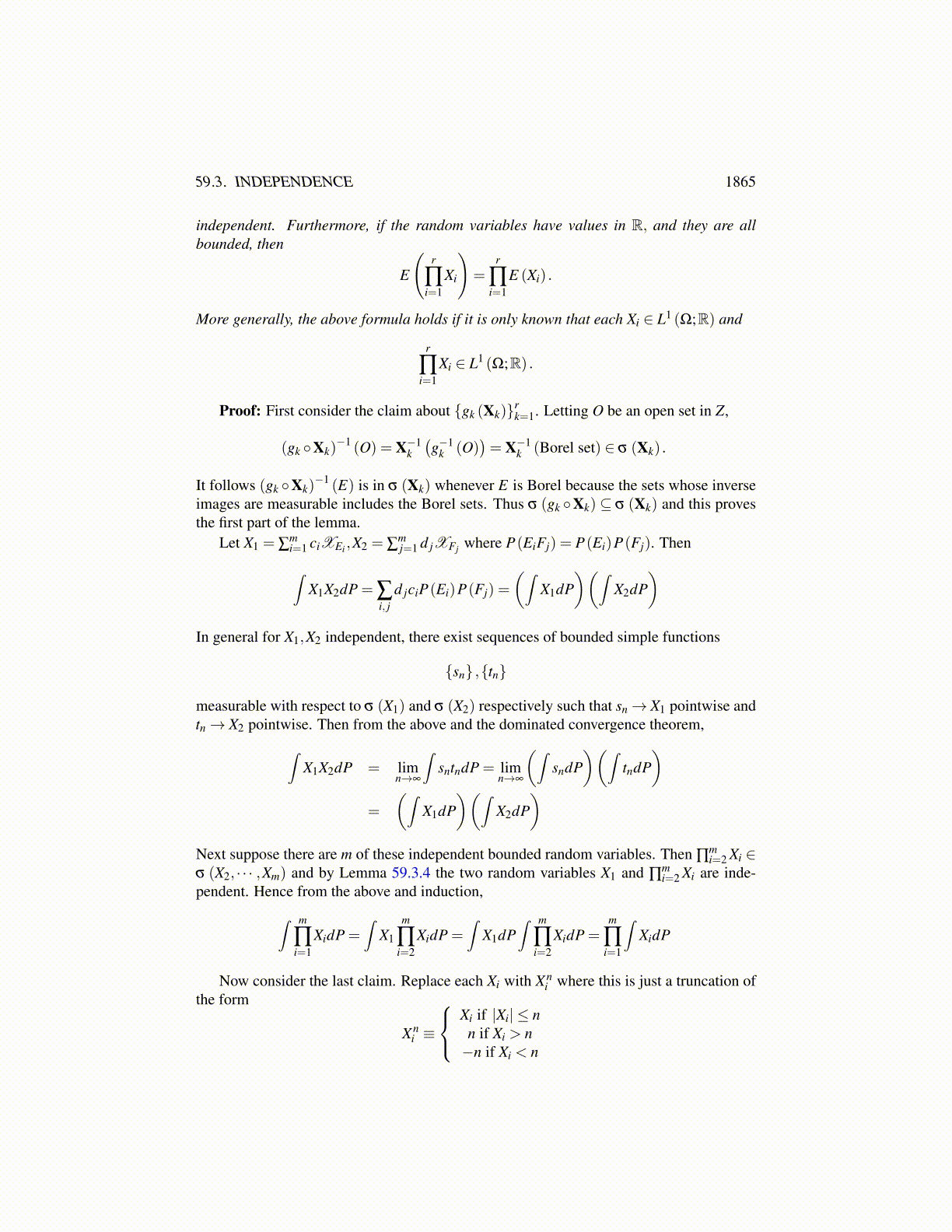
59.3. INDEPENDENCE 1865
Definition 59.3.1 Let (Ω,F ,P) be a probability space. The sets in F are called events. Aset of events, {Ai}i∈I is called independent if whenever
{Aik
}mk=1 is a finite subset
P(∩m
k=1Aik
)=
m
∏k=1
P(Aik
).
Each of these events defines a rather simple σ algebra,(Ai,AC
i , /0,Ω)
denoted by Fi.Now the following lemma is interesting because it motivates a more general notion ofindependent σ algebras.
Lemma 59.3.2 Suppose Bi ∈Fi for i ∈ I. Then for any m ∈ N
P(∩m
k=1Bik
)=
m
∏k=1
P(Bik
).
Proof: The proof is by induction on the number l of the Bik which are not equal to Aik .First suppose l = 0. Then the above assertion is true by assumption. Suppose it is so forsome l and there are l + 1 sets not equal to Aik . If any equals /0 there is nothing to show.Both sides equal 0. If any equals Ω, there is also nothing to show. You can ignore that setin both sides and then you have by induction the two sides are equal because you have nomore than l sets different than Aik . The only remaining case is where some Bik = AC
ik. Say
Bim+1 = ACim+1
for simplicity.
P(∩m+1
k=1 Bik
)= P
(AC
im+1∩∩m
k=1Bik
)= P
(∩m
k=1Bik
)−P
(Aim+1 ∩∩
mk=1Bik
)Then by induction,
=m
∏k=1
P(Bik
)−P
(Aim+1
) m
∏k=1
P(Bik
)=
m
∏k=1
P(Bik
)(1−P
(Aim+1
))= P
(AC
im+1
) m
∏k=1
P(Bik
)=
m+1
∏k=1
P(Bik
)thus proving it for l +1.
This motivates a more general notion of independence in terms of σ algebras.
Definition 59.3.3 If {Fi}i∈I is any set of σ algebras contained in F , they are said to beindependent if whenever Aik ∈Fik for k = 1,2, · · · ,m, then
P(∩m
k=1Aik
)=
m
∏k=1
P(Aik
).
A set of random variables {Xi}i∈I is independent if the σ algebras {σ (Xi)}i∈I are inde-pendent σ algebras. Here σ (X) denotes the smallest σ algebra such that X is measurable.Thus σ (X) =
{X−1 (U) : U is a Borel set
}. More generally, σ (Xi : i ∈ I) is the smallest σ
algebra such that each Xi is measurable.